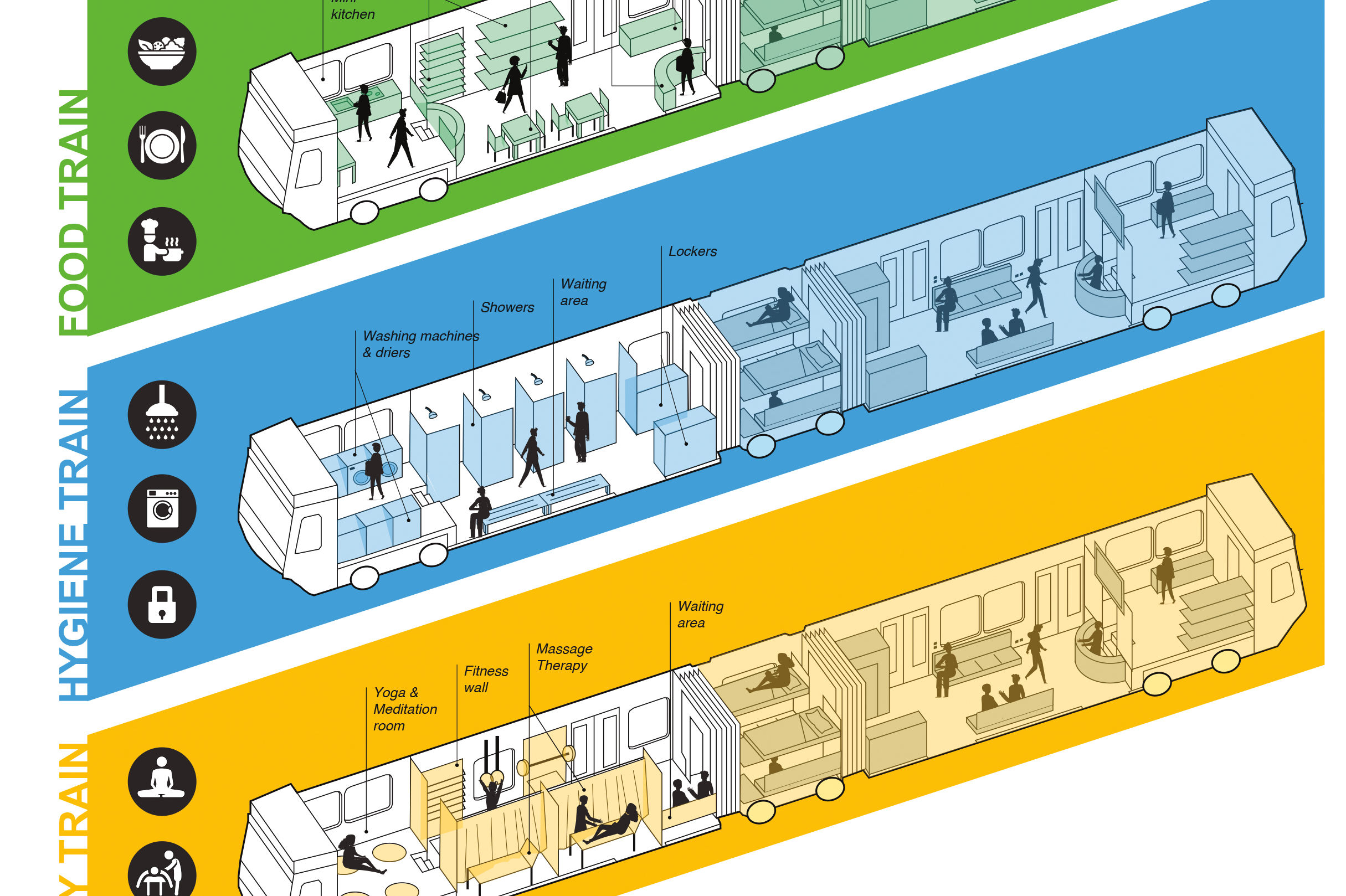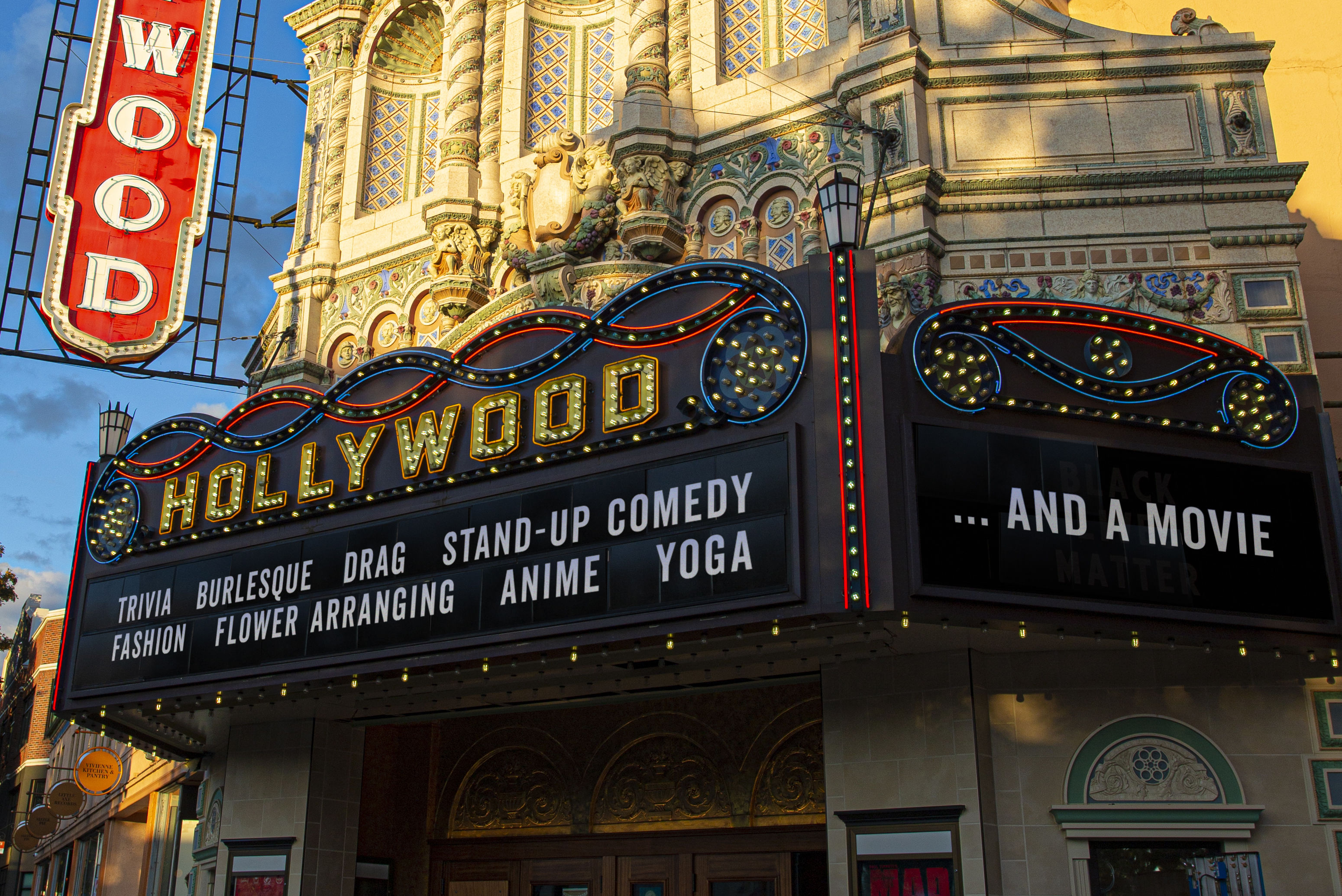In Twinless, Dylan O’Brien Finds Himself in Portland, Twice

Image: Courtesy Roadside
The MAX rumbles through the opening shot of James Sweeney’s new Portland-set psychological dramedy, Twinless. The train clears to reveal an empty restaurant. It’s quiet, but forebodingly quiet—almost peaceful. Soon, the city swells into a bustling yet pointedly isolating backdrop for this black comedy about two grieving young men who bond in a support group for those who have lost a twin. This tranquility won’t last.
The restaurant becomes a signpost marking time in the film. Much like the Chinese spot in My Own Private Idaho, it’s a place where characters lay bare their pain that also signals more trouble is on the way. But the restaurant remains empty this first time we see it. As the camera holds on its windows, we hear the clashing and screeching of a fatal car accident out of frame. It’s an early indication that, while at times darkly funny, this incisive film is profoundly concerned with absence. Starring Teen Wolf’s Dylan O’Brien as the heartbroken himbo Roman, Twinless, which hits theaters September 5, captures how the vulnerability of grief can trick us—or allow us—to ignore red flags, in pursuit of companionship or relief.

Image: Courtesy Sundance
Roman’s twin, Rocky (also played by O’Brien), died in this accident, but the particulars are unclear. Retracing Rocky’s Portland life, Roman essentially takes it over. He starts working Rocky’s old job, stays at his place, and is frequently mistaken for him. Walking around as his dead brother doesn’t bring him back, though it does lead Roman toward a remarkably fraught support system.
Sweeney, who wrote and directed the film, joked about putting his characters through the wringer when we spoke at the Seattle International Film Festival this spring, where he won best director. Mercilessly, the up-and-coming filmmaker keeps them on the brink of reconciling their grief, while the yawning emptiness of a central, cascading deception lies in wait. It’s all part of how Sweeney, who also stars alongside O’Brien, continually turns the story on its head.
Roman has just begun attending the support group when he meets Sweeney’s character, Dennis, who shares about his own lost twin. Roman opens up dramatically, telling Dennis he wishes he could beat up the man he blames for Rocky’s death. Roman and Dennis go grocery shopping together. They clean together. They share so many little mundanities of everyday life that one of Dennis’s coworkers believes they’re dating. It almost plays like the prototypical dramedy. That is, before Sweeney’s master plan clicks into place, when we return to the restaurant and this fast friendship grows dubious.

Image: Courtesy Roadside
Though Sweeney similarly wrote, directed, and starred in his 2019 debut, Straight Up, about a queer man and a straight woman who form a messy relationship, he did so with a “super microbudget” of $250,000. Twinless is a bigger project in every way. Its themes were complex, but Straight Up was a relatively linear string of quippy jokes and tender moments. With Twinless, Sweeney had to find more of the film in the editing room. “It’s all plants and payoffs,” he says. “You remove one Jenga piece and suddenly it all collapses.” Those Jenga pieces are very much present in the final cut. In fact, a persistent threat of collapse drives the film.
Unlocking Roman as a character was the greatest challenge. Sweeney wasn’t sure he’d written him with the depth of a real person. “I spent so much time trying to find his voice,” Sweeney says. “And so when Dylan read it, when I ‘met’ [Roman] for the first time, I just felt so seen as a writer.”
The role represents something new for O’Brien who, while a talented actor, has rarely landed a part so meaty. In Teen Wolf, the young adult dystopian Maze Runner film series, and the recent SNL movie Saturday Night, he was mostly one part of a larger tapestry: more potential than anything else. While casting O’Brien was certainly a get for Sweeney, it was also a bold move to place so much faith in his ability to guide the film’s emotional core—two times over.

Image: Courtesy Lionsgate
“He was so beautifully trusting with me,” O’Brien says of Sweeney. “I had things in my life that I was referencing, that the script was reminding me of.” He didn’t elaborate on the specifics, but something about these twins clearly reminded O’Brien of himself. “I would go as far to say there’s a place that Roman comes from inside me,” he went on, “and I think that James really responded to how instinctively I was responding to his script.”
Rocky appears in brief flashbacks, and the contrast between O’Brien’s two characters is significant. Rocky and Roman are different in everything from their sexuality to their respective outlooks on the world. But it wasn’t until the editing room that Sweeney was able to put Roman and Rocky side by side and fully appreciate O’Brien’s performances. “It was really incredible to see his transformation between the two,” Sweeney says.
It’s exciting to watch Sweeney find his characters in O’Brien as O’Brien’s characters sort out their own lives onscreen—a search that’s alive in the movie. Perhaps it’s telling that, as writer, director, and star, Sweeney had the most trouble locating himself. Over 100 financiers passed on this film before it made it to production, with most complaining that Sweeney’s own character wasn’t believable. “I think that has to do with your propensity for empathy and forgiveness,” Sweeney says. “I try to operate from that place. I try not to judge him.” Holding empathy for Dennis isn’t easy, especially in the film’s final sequence, when we return to that doomed restaurant for one last twist of the knife. Whatever truth he’s looking for—forgiveness, compassion, companionship, relief—as writer, director, actor, or grieving sibling, Sweeney found it in a small booth in the back of that restaurant.




